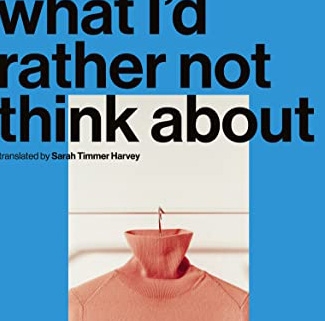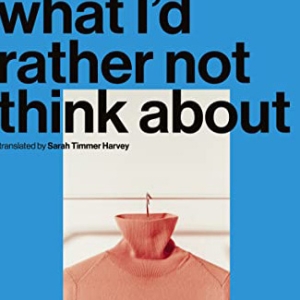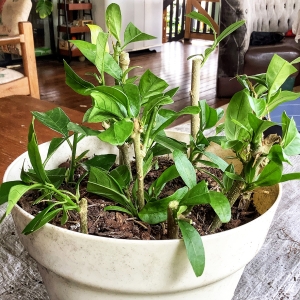What I’d rather not think about
by Jente Posthuma
translated by Sarah Timmer Harvey
reviewed by Wendy Tucker
This is the second novel from Jente Posthuma, a Dutch writer, and was among the six novels shortlisted for the International Booker Prize 2024. The Booker Prize has had a few name changes and this has resulted in some confusion. The Booker Prize (now the new/old name) is for a novel published in English from writers in Commonwealth countries and Ireland. In 2005, the International Booker Prize was inaugurated for novels worldwide, that were published in English, including books translated into English, with the aim of promoting global literature. Both prizes are worth £50,000 (nearly $100,000) but worth much more in prestige and additional sales (winning the Booker is said to increase sales by 800%!). Readers don’t always agree with the judges and the validity of naming one novel the best is subjective. But I usually pick and choose among the short lists and winners and I’m very glad I picked this one.
What a surprise. I was totally immersed in the novel by an unnamed protagonist as she reflects on her life with her twin brother through childhood and adulthood in short vignettes, like a mosaic. She had believed they would be together all their lives. Now she must ponder how she will live without him after he takes his own life. It sounds grim but I didn’t find it so. It’s grief, it’s co-dependency, it’s dysfunction, it’s sad, it’s funny and it’s beautiful.
… I don’t need my own life, I said.
You just don’t want to live alone, said my brother.
But that wasn’t it, I did want to live alone, but with my brother …
The sister has always felt less than her twin – he’s bigger, extroverted and gay. They discover boys together. They share the same interests, which reflect the 2000s – twins, experiments on twins by Joseph Mengele, the Twin Towers, Trump, moving to New York, cheap travel to ‘find yourself’ and the Dutch version of the TV show, Survivor. The brother draws away, having his own relationships, and begins to follow the teaching of Bhagwan. The sister desperately tries to hold on to their closeness.
The writing is simple, subtle and often very funny and for this the translator must be given credit.
The novel is by a Dutch writer and mainly set in Amsterdam but feels universal.



